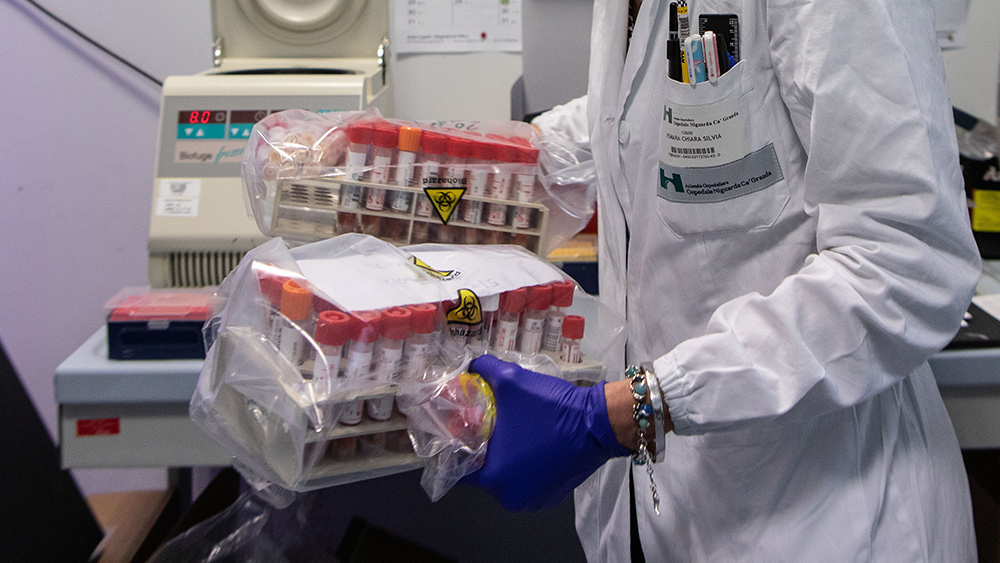“Skeptical about Skeptics” exposes pseudoskeptics who masquerade as arbiters of truth while spreading disinformation
03/30/2021 / By Ethan Huff

The dictionary defines skepticism as doubting or questioning something that is generally considered to be true. Logically speaking, a genuine skeptic has solid, evidence-based reasons to believe that an established “fact” is open to debate, and thus presents them for consideration. This is healthy skepticism, and it is often how new discoveries are made and science is advanced.
Many who call themselves skeptics today, however, are actually pseudoskeptics who live to defy healthy skepticism and impede progress. They actively interfere with real skepticism by trying to keep a lid on it, and if that does not work then they mock healthy skepticism in an attempt to delegitimize it – all the while claiming to be the true skeptics.
These anti-skeptics in skeptics’ clothing are often paid to fight against real skepticism. North Carolina doctor and Big Pharma quack Stephen Barrett, for instance, has spent much of his decrepit life tarnishing the reputation of dietary supplements and nutrition while pushing synthetic drugs and vaccines as the only “legitimate” form of medicine.
A real skeptic operating within the paradigm of a drug- and vaccine-based Western medicine system would actually do the opposite of what Barrett does. A real skeptic would question the legitimacy of pharmaceuticals and chemical injections in light of growing evidence that reveals nutrition to be a much better prescription for healthy living than Big Pharma’s offerings.
In Barrett’s mind, however, he is the true skeptic because he is skeptical of those who are skeptical of what he was taught in medical school. Barrett is not interested in learning new things, discovering new truths, or even just trying to hone his medical practice for the betterment of public health. Instead, he is focused exclusively on protecting the golden calf of drugs and vaccines, which is all he apparently knows.
There are many others like Barrett out there who do the exact same thing in other areas of science. These prideful, know-it-all folks are known to troll “fact check” websites and information portals like Wikipedia to ensure that their version of reality is held up as the exclusive “truth.” They also work to prevent new discoveries and opposing beliefs that threaten their dogmas from being published anywhere that people with an open mind might have the chance to learn about them.
Fake skeptics like Barrett are nothing more than pseudoscientific luddites who angrily and desperately cling to outdated beliefs, many of which have long been debunked. These people would be harmless were it not for the oversized influence they maintain on the media and academia. They also tend to steer conversations online, holding favor with Big Tech platforms like Google that promote their information over that of others.
“A genuine skeptic is one who inquires with an open mind, using critical thinking and paying attention to the evidence. Unfortunately, some people who call themselves skeptics are in fact pseudoskeptics,” explains the new website Skeptical about Skeptics, which is fighting back against this pseudoskeptic cult.
“They believe they know the truth already and dismiss any evidence as irrelevant. They are committed to the belief that minds are nothing but the activity of brains and are confined to the insides of heads. Hence psi phenomena are impossible.”
Mainstream “skeptics” are opposed to truths that make them uncomfortable
Skepticism, explains Skeptical about Skeptics contributor Craig Weiler, is supposed to be about approaching new ideas rationally and examining the available evidence objectively before making a determination one way or the other about its legitimacy. Almost none of the mainstream “skeptics” do this, unfortunately.
Weiler warns that it is possible – this writer would use the word probable – “to go completely overboard on skepticism to the point where it’s just overwhelming bias against new ideas. They are rejected out of hand and evidence is disregarded before it is even seen.”
This is how establishment luddites like Barrett operate because their minds are completely closed to new ideas. If Barrett was not taught about it in medical school 50 years ago then it cannot be true, would seem to be his general stance towards new and unfamiliar ideas. This toxic mindset is prominent within the establishment “skeptics” community and it is what Skeptical about Skeptics exists to deconstruct.
“This site focuses on the people who fall in the dogmatic denier category because they present themselves as being the most truthful and objective, which they are not,” Weiler explains.
“They call themselves skeptics and they would be harmless save for the fact that they have a lot of influence in academia and the mainstream media and are invested in making sure that mainstream sources, such as Wikipedia reflect their point of view. (And only their point of view).”
Weiler concludes that nearly any controversial subject out there “has another side to the debate that you probably haven’t heard.” The goal of Skeptical about Skeptics is to allow these other sides to be heard.
More related news can be found at Awakening.news.
Sources for this article include:
Tagged Under: pseudoskeptics, rational, science clowns, Skeptical about Skeptics, skeptics, Stephen Barrett, thought police, Wikipedia
RECENT NEWS & ARTICLES
COPYRIGHT © 2017 SCIENCE CLOWNS



















